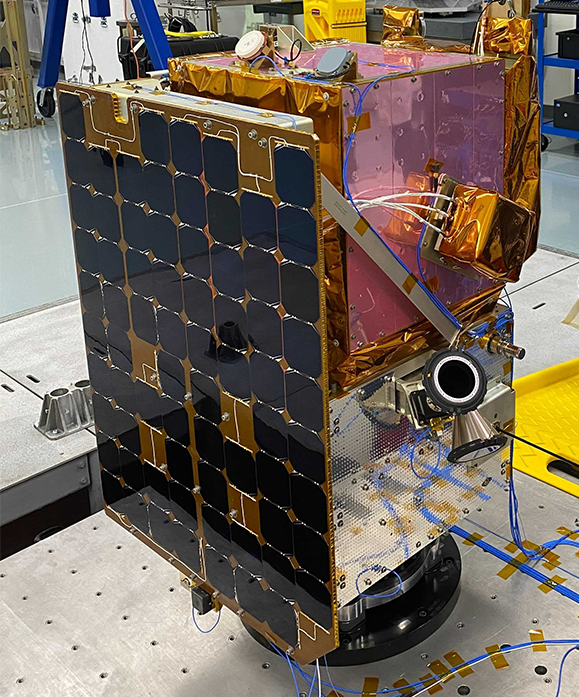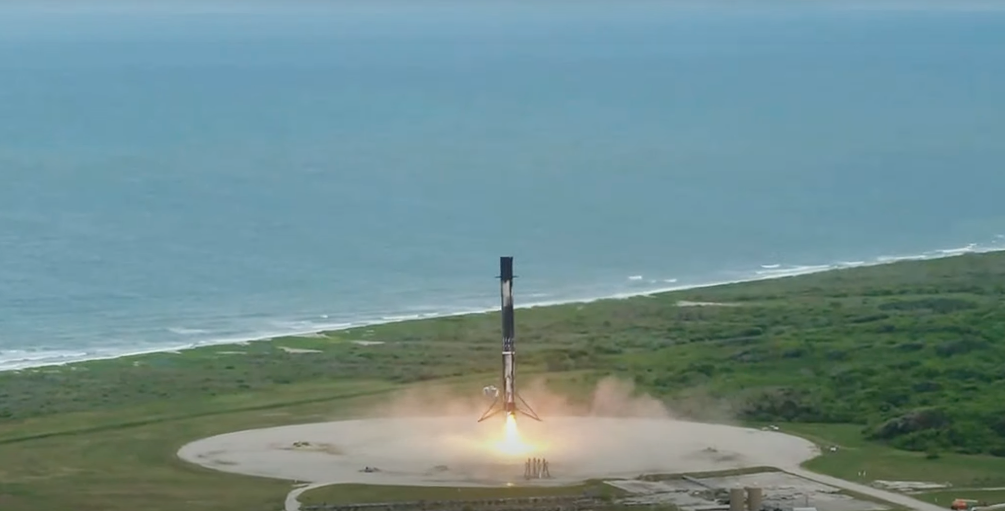Stay Up to Date
Submit your email address to receive the latest industry and Aerospace America news.
Loft Orbital touts alternative to customized sats
Among the 88 satellites launched from Florida moments ago atop a SpaceX Falcon 9 rocket are two that will test the business plan of Loft Orbital, a San Francisco startup, that wants to shift at least some space operators away from the conventional practice of customizing satellites for specific purposes, such as imaging or communications.
The washing machine-sized satellites are the first for Loft, which has begun leasing room on its Payload Hubs, box-shaped adapters one of which will be installed on each satellite with cables to connect a device, such as a customer’s camera or communications terminal, to a flight control computer.
Each Payload Hub launched today carries five payloads for customers who paid undisclosed sums. Among the payloads are a visible light camera whose images will be processed by onboard artificial-intelligence software in a test of technology for the Defense Advanced Research Project Agency’s planned Blackjack constellation, which will demonstrate a high-speed autonomous network in low-Earth orbit for communications and missile warning, among other purposes.
The satellites, called Yet Another Mission-2 and Yet another Mission-3, are meant to demonstrate this plug-and-play architecture as an option for those seeking to lower their operating costs. Loft scrapped plans to launch YAM-1, mission that would not have involved paying customers.
In the business model, Loft purchases standard satellite buses from vendors and installs a Payload Hub on each. It also books each satellite’s ride to orbit, and operates the spacecraft including the Payload Hub which serves as the spacecraft’s “brain,” controlling the payloads and the data from them, the company says.
Loft wants the experience for its customers to be as simple as air travel. “You can just use something without having to go ahead and design and buy the piece of hardware, just like how you can hop on a flight and get a ticket on a flight as opposed to having to design or buy an airplane,” said Pierre-Damien Vaujour, the co-founder and CEO of Loft, in a pre-launch interview.
Bolting a Payload Hub to a satellite and hooking up and testing the payloads takes about two days, compared to the months of work that would be required to customize each bus, he said.
The way things work conventionally today, most cost “comes from the customization of the platform and not the performance or the reliability,” he said . “To put things in perspective, if you were to buy one satellite, it’d maybe cost you $50 million, and if you buy a carbon copy of that satellite, it goes to 2 [million dollars]. The actual cost of customization is 90% of the cost of the satellite itself.”
The launch of YAM-2 and YAM-3 and the other satellites was bumped twice, most recently on Tuesday when an aircraft flew too close to Cape Canaveral Space Force Station during the countdown.
The launch was SpaceX’s second Transporter rideshare flight. The YAM satellites, still attached to the Falcon 9 second stage, were due to ride to a 550-kilometer sun-synchronous orbit about an hour after liftoff. The satellites will then be released to their destination orbits. That’s when Loft flight controllers will begin commissioning the YAM satellites via Cockpit, the company’s flight control software. Loft customers also have access to a version of Cockpit via an online dashboard that shows the status of their payload and includes a link to upload commands.
If the payload were a camera, for instance, the customer “can request the satellite to slew, move in one direction or another to do exactly what they want to do. They can set all the parameters in the spacecraft and all the parameters.”
Loft deconflicts the competing needs of customers flying payloads on the same satellite via service agreements signed beforehand. The Cockpit software autonomously sorts tasks into the most efficient order, Vajour said.
Starting in 2022, Loft plans to launch at least one satellite every three months, depending on how quickly satellite buses are produced. Loft purchased the YAM-2 spacecraft Blue Canyon Technologies in Colorado and the YAM-3 bus from LeoStella of Washington, and has selected both companies to deliver buses for upcoming missions.
About cat hofacker
Cat helps guide our coverage and keeps production of the print magazine on schedule. She became associate editor in 2021 after two years as our staff reporter. Cat joined us in 2019 after covering the 2018 congressional midterm elections as an intern for USA Today.
Related Posts
Stay Up to Date
Submit your email address to receive the latest industry and Aerospace America news.





